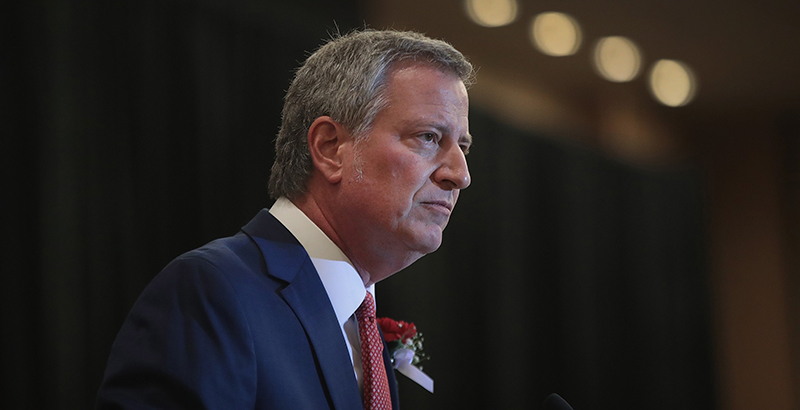An Educator’s View: To Be Fair to Students and Teachers, New York City Needs a Real Plan for Dealing with the Absent Teacher Reserve Pool

Get essential education news and commentary delivered straight to your inbox. Sign up here for The 74’s daily newsletter.
I, and thousands of teachers across New York City, are deeply concerned about Mayor Bill de Blasio’s recent decision to close New York City’s Absent Teacher Reserve (ATR) pool for unassigned teachers and place them all in classrooms this fall.
To be clear, I empathize with many of these educators. You see, I was “excessed” at the end of my sixth year as a public school teacher, a casualty of federal housing policy that relocated my school’s population and reduced my class from 25 students to 11 in just one academic year. It was sheer luck that enabled me to secure a teaching placement in another public school in my district. But in the current version of this story, New York City’s public school educators, parents and students are the ones who will be relying on luck for their futures, and this is an unacceptable truth.
The reasons that teachers are placed in the ATR pool are as varied as the teachers themselves. Like me, many were competent professionals who were unfortunate victims of the reshuffling and reconfiguration often present in large public school districts. Others, however, have much more complicated histories that hinder their ability to deliver effective, safe instruction to children. Many more haven’t had the opportunity to lead a classroom in a long time, and much has changed — particularly in the last year. Frankly, some of these teachers should not return to classrooms. Those who should return will need additional support to prepare for reentry into vastly different New York City schools. Many students’ learning gaps will be acute, and we need to ensure that educators are prepared to meet this challenge and attuned to students’ mental health, or they and their students will struggle.
Principals and teachers who serve on school hiring committees must be able to make fully autonomous decisions, with the best interests of the students and teachers in the building in mind. If the placement of ATR teachers would override input from those hiring committees, de Blasio must abandon such a plan.
Furthermore, if the administrative deal cut by the district removes the principal’s ability to support and manage an ATR placement like any other teacher, it will be unfair to the other teachers in the building, and a shaky proposition for the social and academic welfare of kids. I worry about this, after the year of disruption and loss that our educators and students have experienced.
Before I can feel any semblance of comfort with the return of teachers from the ATR pool into classrooms in September 2021, I must have the answers to several questions. Chief among them:
- Will ATR-placed educators be spread across a diverse swath of schools, or will they be concentrated in schools with the neediest students, who especially need educators fully prepared to serve on the first day of school?
- Will ATR-placed educators be matched to their areas of certification and/or expertise to maximize learning success?
- Beyond the preparation that all teachers will receive, will ATR-placed educators who have been out of the classroom for years receive additional training to be ready to teach an especially vulnerable population of students on day one?
- Will administrative and instructional leaders — including teachers — be able to weigh in on the decision to hire teachers from the ATR, and once placed, will these placements fall under the full support and supervision of the principals in these schools?
If de Blasio wants teachers’ support, these questions must be answered right now, not at the eleventh hour before school begins. Children deserve educators well matched to their learning needs, and teachers deserve colleagues who are able to pull their weight on teaching teams and held to the same standards as every other educator in the building. The pandemic was tremendously hard on students, and on their teachers, who are now tasked with the enormous responsibility of helping them recover academically, socially and emotionally. Now, more than ever, we cannot afford half-baked policies that could result in underprepared educators being haphazardly placed to work with students with the highest needs.
Paula L. White is executive director of Educators for Excellence-New York, a teacher-led policy organization.
Get stories like these delivered straight to your inbox. Sign up for The 74 Newsletter

;)